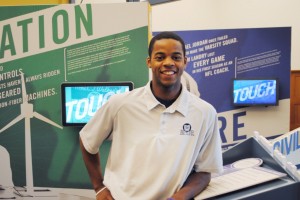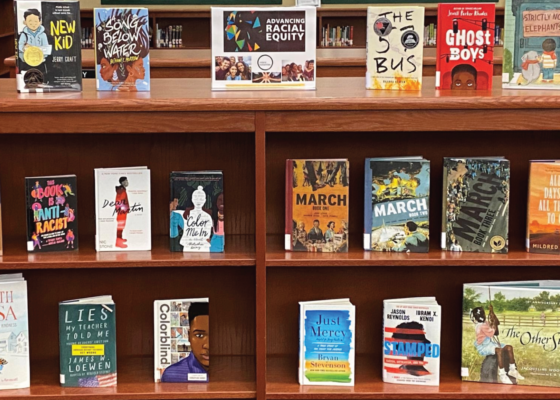Ronald Nored: The lessons of competition extend beyond the game
October 8, 2012At Butler, Coach Brad Stevens taught me a lot, but he especially helped me learn one key lesson: Competition isn’t life, but it teaches us a lot about life. That’s why I hope teachers across the state will tap into the resources offered by Indiana Humanities, helping their students learn the lesson of competition, and embracing the examples of civility, rivalry, innovation, passion and, yes, failure highlighted in Spirit of Competition. I speak from personal experience when I say those lessons will guide them for the rest of their lives … and no wins or losses will ever take them away.

The lessons of competition extend beyond the game
By Ronald Nored
Technically, I guess you could say my college basketball career ended in failure. After all, my last game for Butler University was a loss in the College Basketball Invitational. Not only that, but each of the previous two seasons ended with the team losing in the championship game of the NCAA Men’s Basketball Final Four.
Calling my career a failure, though, would mean ignoring the lessons I learned from competing – lessons that prepared me for life beyond the basketball court. When I consider those lessons, I definitely had a successful basketball career. In fact, even if we had won both titles, I still would consider the lessons I learned to be the greatest prize of all.
That’s the sentiment I present to students in the classroom and in the gym at Brownsburg High School every day. It’s also the message I was proud to share with teachers who gathered Oct. 3 at the NCAA Hall of Champions to help launch Indiana Humanities’ new teacher resources. Offered in conjunction with its Spirit of Competition initiative, the resources are designed to help teachers across the state incorporate the lessons of competition into their classrooms. (The toolkits are available on SpiritofCompetition.org.)
For me, these lessons begin with learning to set goals. In sports, goals are incredibly tangible: You want to score points, get your best time, win a match or get that championship trophy. For kids in school, goals aren’t always that clear. They might know they want to get a decent grade, but what’s the goal after that? Passing the class? Graduating? Scoring a certain number on the SAT? Getting into a good college? Getting a great job?
Many students can’t imagine such long-term goals, and they certainly haven’t given much thought to how they would reach them. So we try to help kids see what would be, in a sports context, the equivalent of hitting the weights, studying films, playing game after game, losing a few matches, working toward a championship and more.
For me, one of the greatest lessons gained through this process was about collaboration. On a basketball court, I needed those four others players on the floor and the guys on the bench to win. But it wasn’t enough to simply have them there; I needed to know their strengths and weaknesses, and how best to work with them. And we all needed to share the same goals if we had any hope of winning. For kids to one day succeed in the workplace, they need to understand this, too.
Good collaboration creates a sense of responsibility. I learned that my primary job was to get better every day. I didn’t expect myself to play flawlessly every game, and I didn’t work out every day because I planned to become an NBA superstar. Instead, I expected to play my hardest, and I worked out so I could be better each time I walked onto the court. Similarly, I never ask high school kids to be perfect, or expect a struggling student to suddenly start posting all A’s; however, I do expect every student to strive for improvement, and to do all he or she can to work toward success.
Of course, one of the most difficult lessons we learn from sports comes from failure. As an athlete, no matter how successful you are, at some point you will experience defeat. What matters most, we tell student athletes, is not that you lose, but how you respond to that loss. The same thing applies to our daily lives. Sometimes things don’t go the way we had hoped. The key is how we react to those moments of failure.
At Butler, Coach Brad Stevens taught me a lot, but he especially helped me learn one key lesson: Competition isn’t life, but it teaches us a lot about life. That’s why I hope teachers across the state will tap into the resources offered by Indiana Humanities, helping their students learn the lesson of competition, and embracing the examples of civility, rivalry, innovation, passion and, yes, failure highlighted in Spirit of Competition. I speak from personal experience when I say those lessons will guide them for the rest of their lives … and no wins or losses will ever take them away.
Nored is the Team 2016 academic coach and head basketball coach at Brownsburg High School. This piece appeared in The Indianapolis Star on Oct. 8, 2012.


